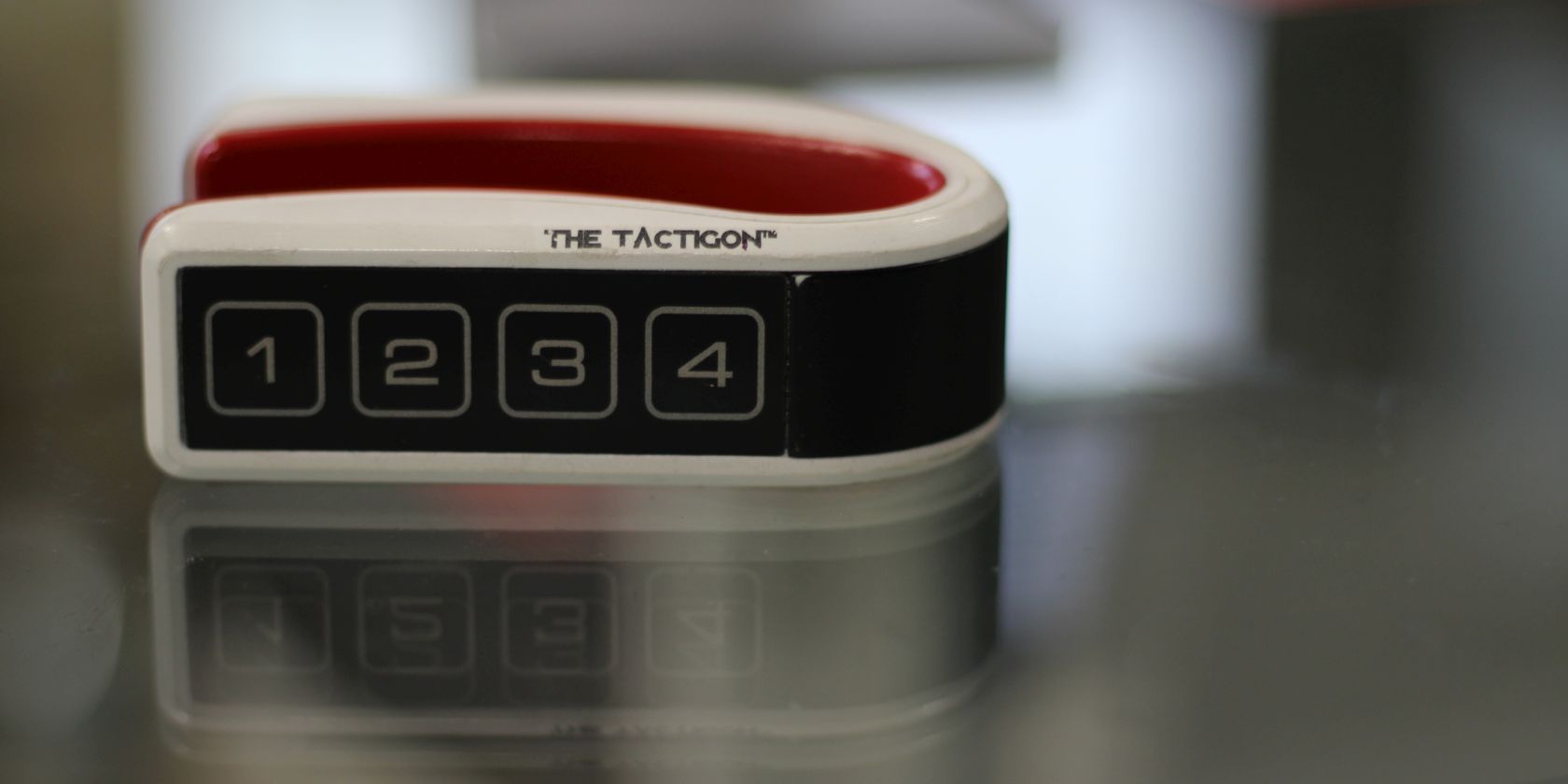
3D mouse technology lets you control computers just by gesturing in the air. In 2019, two 3D mice from Consumer Electronics Show (CES) 2019 were revealed: the Padrone Ring and the Tactigon Skin.
What’s a 3D Mouse?
So what’s a 3D mouse? They use an infrared sensor or a multi-axis sensor cluster, the same in your smartphone, to translate physical movement into computer control. In short, moving the mouse also moves your computer’s on-screen cursor. But the concept isn’t new. 3D mice are often sold as remotes for home theater computers, where you don’t have the space for a mouse pad.
3D mouse isn’t the only name for them. They’re also referred to as gyro mouse and air mouse. There are no differences between the terms and both refer to computer mice that don’t require mouse pads.
The two mice listed in this article aren’t the only hand-worn motion controllers, either. Among the many devices that have come and gone over the years, some of the more memorable competitors include the Mycestro (our review of the Mycestro) wireless 3D finger mouse, the Tap mouse and keyboard, and the Vicara Kai.
The Padrone Ring
The Padrone Ring turns your fingers into a mouse and any surface into a mousepad. You have to see it to believe it:
The Ring can control presentations without a mouse pad. Simply rubbing your fingers along any surface moves the mouse cursor and tapping a finger actuates clicks. The concept is similar to the Tap wearable mouse, except that it can pair over Bluetooth without requiring a dongle. Aside from dongle-free operation, the Padrone Ring is also weather sealed and charges wirelessly (almost certainly using a proprietary charging standard, rather than the non-proprietary standard set by the Wireless Charging Consortium).
Personally, I prefer a USB-C or Micro-USB port for charging as the usage cases for a weatherized 3D mouse seems very narrow. Also, a weather-sealed $ 250 ($ 200 through the crowd-funding campaign) mouse with a tiny battery that requires daily recharging may not offer good long-term value. One would hope that Padrone would offer users some way of replacing its lithium-ion battery.
Overall, the project seems to cater to those who want to wear a control input all day long. I personally want to use it for presentations, HTPC control, and for mobile/laptop usage when a mouse pad isn’t nearby, such as on public transportation and airplanes.

The Indiegogo campaign is still active and has already been successfully funded. If you hurry, you can still preorder the $ 200 rings for a summer of 2019 release. However, they are only in the prototype phase and most Indiegogo projects get delayed by months if not years. Also, keep in mind that crowd-funded projects carry the slight risk that the project may fail and the backers may not ever receive their product.
Tactigon Skin
The Tactigon Skin is a 3D mouse and Android VR device coming to Kickstarter in February of 2019 for $ 140 (a 40% discount). Here’s a video that demonstrates how the device works:
The Tactigon Skin can function as a mouse without installing any additional software, unless you own a system without Bluetooth Low Energy support. All modern operating systems include BTLE functionality so few won’t be able to use it without a dongle (a dongle is included, but it isn’t required).

Among its peers, the Tactigon distinguishes itself in several ways. First, it includes true Bluetooth compatibility instead of requiring a Bluetooth, Wi-Fi Direct, or 802.11 wireless dongle. For example, the Vicara Kai and Mycestro mouse can function as a 3D gesture mouse—but only if the user plugs in a dongle. Without a dongle both controllers cannot function in their intended roles. Full functionality also requires installing special software to access extra features.
The requirement that laptop users lug a dongle along can prove deal breaking, since dongles can easily get lost or broken and installing apps could cause battery drain.

On top of the ability to function as a 3D mouse where you can control the mouse cursor by gesturing in the air, the Tactigon Skin also functions as a control input for Android virtual reality platforms (Oculus Go and Samsung GearVR) and as a Arduino remote control. In the demonstration, the Tactigon skin, combined with a prototype motion tracking unit, moved a robotic arm and claw around.

Tactigon Skin is compatible with all major platforms, including iOS, Windows 8, 8.1, and 10, Android, Linux, and Macintosh. The Kickstarter campaign begins in February of 2019 and early investors get a 40% discount. Visit the Tactigon Skin Facebook page for more details. Keep in mind that crowd-funded projects may fail or become delayed.
Read the full article: These 3D Mouse Wearables Killed the Mousepad at CES 2019


